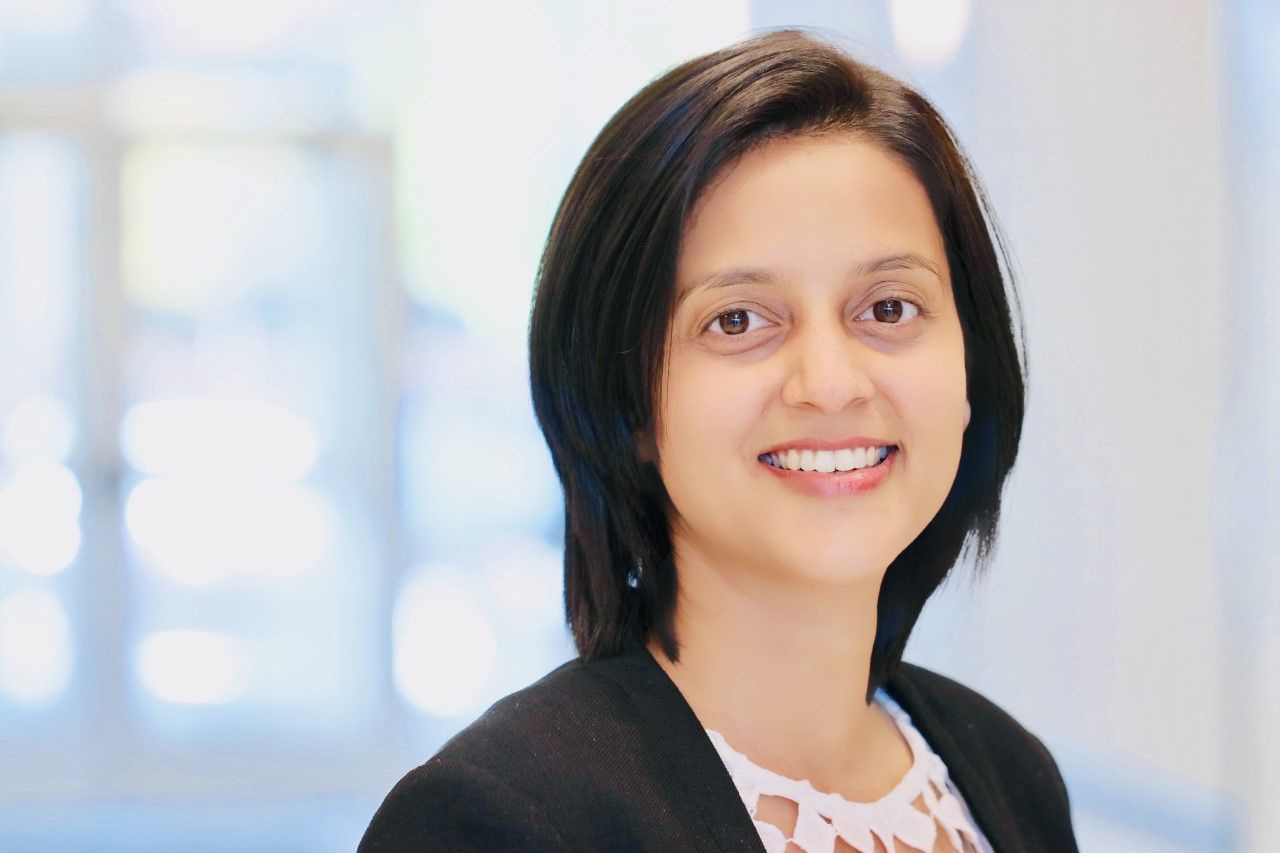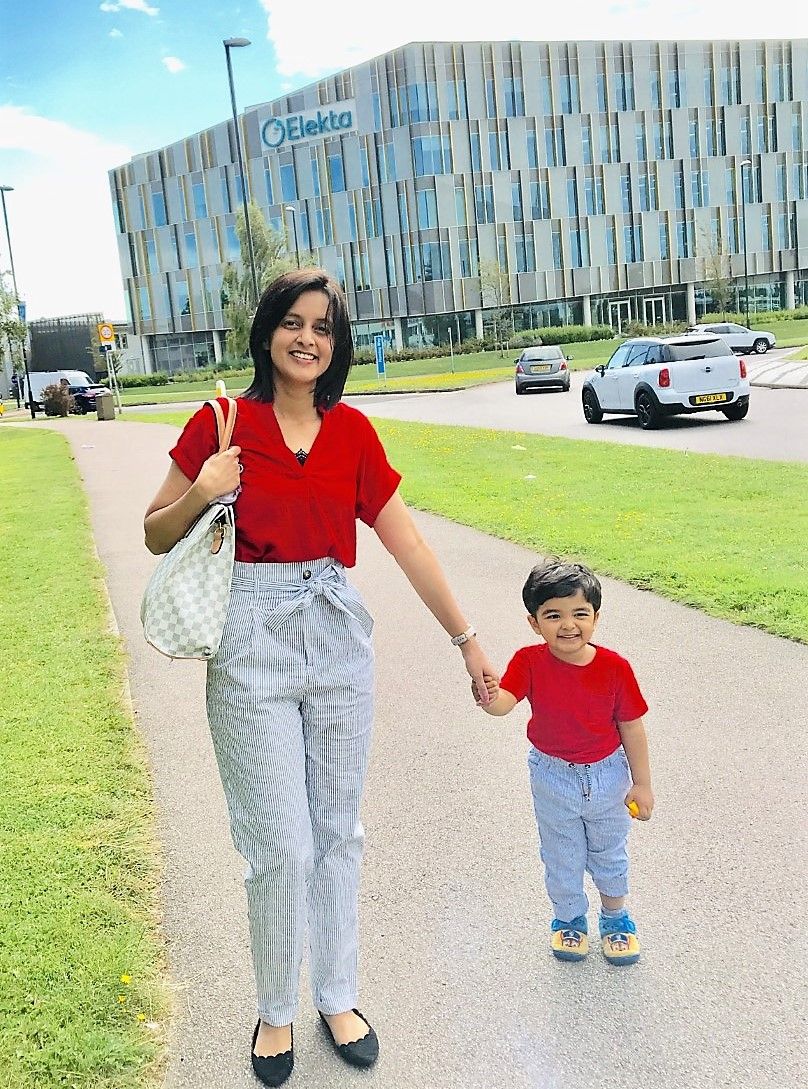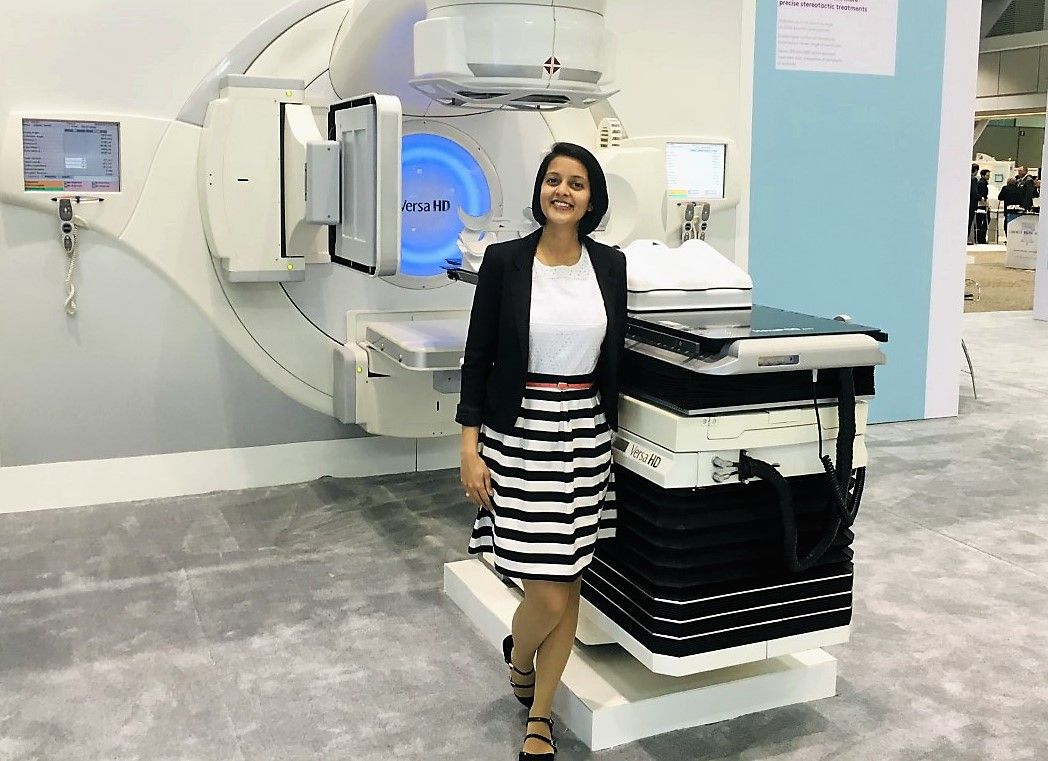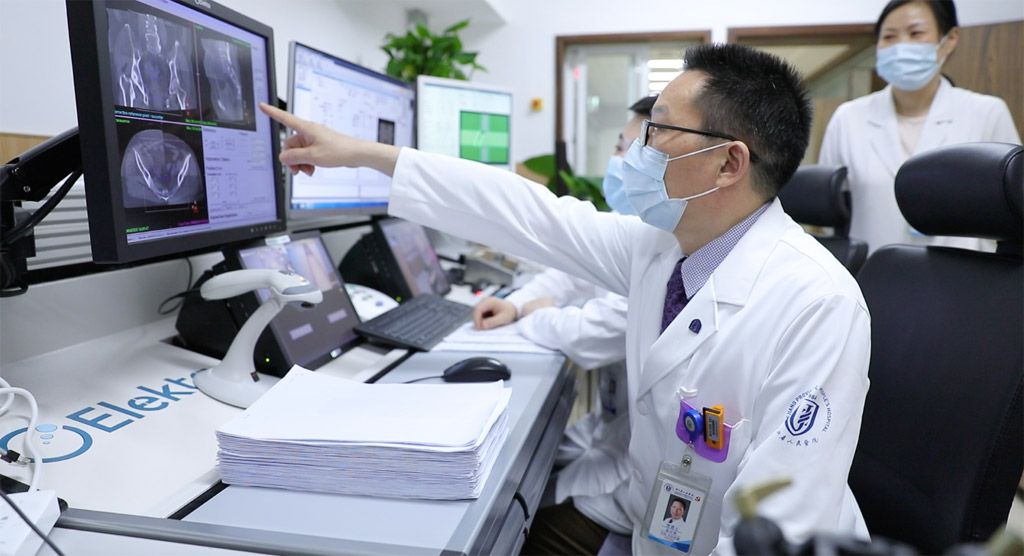How the “Maternal Wall” impacts STEM professionals

Elekta’s Sonal Bhadane, Mothers in Science co-founder and COO, trains spotlight on parenthood / STEM career conundrum
A confident, rising star in Elekta’s linac business, Sonal Bhadane still fretted about what would become of her career when in 2016 she became pregnant with her first child.

“I was doing really well at my job, I was on the verge of promotion and everything in my career was on an upward trajectory,” says Sonal, the company’s Validation Process Excellence Manager since August 2019. “Even though I knew Elekta had a reputation as an inclusive, supportive organization, breaking the pregnancy news to my colleagues felt like such a burden to me. Although naturally becoming a mother is a happy event, I couldn’t predict how my coworkers would react, what they would think of me and how it would affect my career.”
Her concerns persisted during maternity leave even while bonding with her newborn. It drove her to research whether other working mothers – particularly those in high-pressure, male-dominated STEM (science, technology, engineering, math) fields – have similar feelings.
She met science editor/writer and science communicator Isabel Torres online and they shared their experiences.
“We had to do something to make parents – both mothers and fathers – feel more connected and to build a community where we don’t have to engage in self-doubt.”

“Isabel is a mother of four and we instantly connected, and knew we had to do something to make parents – both mothers and fathers – feel more connected and to build a community where we don’t have to engage in self-doubt,” Sonal says. “As a group we could come together and normalize being parents in any working situation.”
The pair soon realized that while fathers encounter some of the same career impediments associated with parenthood, biases and discrimination were much more profound for women, especially those in STEM fields. Noting a lack of an organized, cohesive support community for STEM mothers, Sonal and Isabel founded the non-profit Mothers in Science, the only international organization devoted exclusively to advocating for equity and inclusion of parents and people with caring responsibilities in STEM. Mothers in Science boasts an online community of over 11,000 worldwide.
Mothers in Science aims
A major aim of Mothers in Science is to “support, connect, empower and increase the visibility of mothers in STEM.”
“We picked these words very carefully, because globally there seemed to be a lack of structured connection and support among mothers in STEM, as well as recognition of this particular group of STEM professionals and their issues – problems we are trying to address,” Sonal says.
Another key mission of the community is to identify and raise awareness of the barriers preventing women with children from progressing in their STEM careers. During the Mothers in Science May 5, 2021 virtual conference, Isabel Torres reviewed the major “building blocks” of what the group calls the Maternal Wall, a barrier that impacts far more STEM mothers than STEM fathers.
The Maternal Wall obstacles – all stemming from pervasive, global gender norms (i.e., fathers/men = “breadwinners,”, mothers/women = “caregivers”):
- Lack of childcare infrastructure, an issue that was only exacerbated by Covid-19 lockdowns. Women are most often required to cut working hours or leave work altogether.
- Unequal parental leaves; fathers’ leaves are substantially shorter.
- Salary penalties. Research shows that for each child a woman has she loses five percent of her salary.
- Bias and discrimination. Women who become mothers are viewed as less competent and less committed to work on their return to the workplace, often pushed out of projects and not invited to meetings.
- Inflexible 24/7 work culture designed for the “ideal worker,” i.e., not one with childcare responsibilities.
- Uneven division of unpaid labor, i.e., mothers do three times the domestic chores, including childcare. This applies even to women in academia and in every country, demographic and education level.
Global survey
To measure the existence of the Maternal Wall barriers and perceptions among STEM professionals, in 2019 Mothers in Science issued a global survey, which garnered nearly 9,000 responses from 128 countries. “The aims of the survey were to measure the impact of parenthood on career progression and to identify specific career obstacles,” Sonal notes. Notable preliminary results:
- Q: If you were applying for a job or a promotion would you mention that you have children in your CV and/or cover letter? (mothers NO: 55%, fathers NO: 50%)
- Q: If you were applying for a job or a promotion, would you mention your parental leave? (Mothers NO: 46%, fathers NO: 35%; 41% of fathers reported taking no parental leave at all)
- Q: Since becoming a parent, have you generally been offered fewer, more, or about the same number of professional opportunities? (mothers overwhelmingly said they were being offered less or about the same opportunities than fathers)
- Q: Rate the following sentence: Since becoming a parent, my competence has been called into question by my employer(s)/supervisor(s) or colleagues directly or indirectly. (mothers “strongly disagree”: 66%, fathers “strongly disagree”: 17%)
- Q: Rate the following statement: In my experience, parenthood negatively impacted my career. (mothers “agree” 61%, fathers “agree” 38%)

“Our initial conclusions are that the Maternal Wall is widespread in STEM and that more research is needed to identify problems in specific countries and STEM sectors,” Sonal observes. “It’s also clear that we must raise awareness of these issues to break stigmas and stereotypes.”
She notes that many organizations stress work-life balance among their employees, as though they are adversarial concepts.
“The key thing they should know is that they are not alone. There is a whole community out there that feels exactly the way you feel.”
“Why do we need to talk about work-life balance for mothers and parents,” she says.
“Parenthood should be a natural phenomenon that should be as normal as eating food. When individuals hit that Maternal Wall and feel they need to pressurize themselves or they develop ‘imposter syndrome,’ or worry about career penalties, isolation or structural barriers and gender norms – the key thing they should know is that they are not alone. There is a whole community out there that feels exactly the way you feel. I would recommend they visit Mothers in Science, regardless if they are mothers or fathers. There are lots of activities we are constantly doing and hosting, and various ways to get involved and seek support.”





